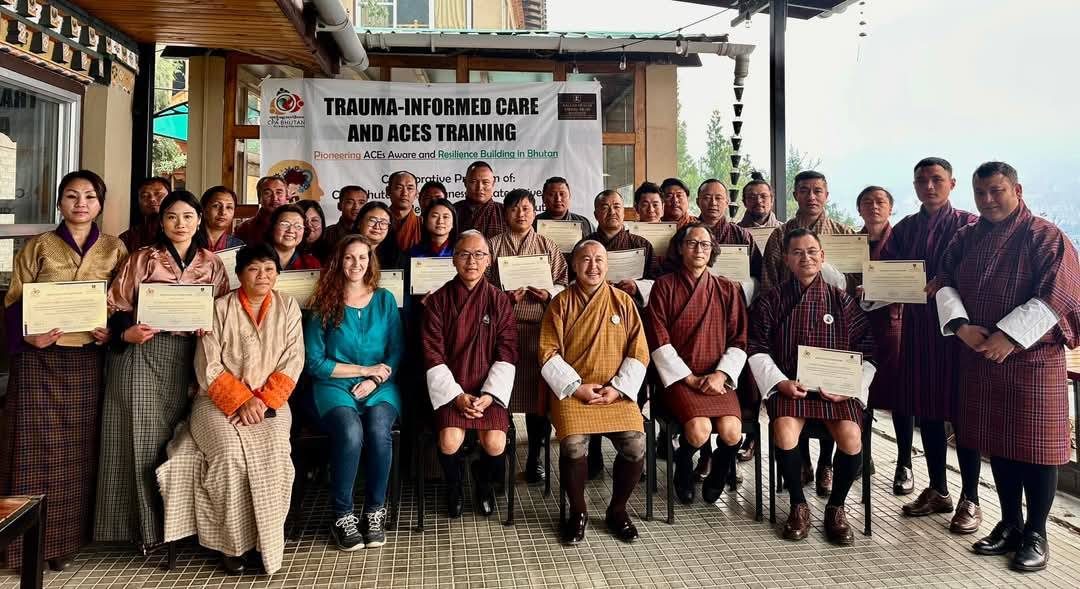Bhutan’s First-Ever Training on Trauma-Informed Care and ACEs Prevention

Prolonged stress during childhood can have life-long consequences on a person’s health and well-being. According to the World Health Organization (WHO), such stress can disrupt early brain development and weaken the immune and nervous systems, leading to various health and social issues. To address these concerns, the Chithuen Phendhey Association (CPA), in collaboration with East Tennessee State University, organized a four-day training program in the capital on Trauma-Informed Care and Adverse Childhood Experiences (ACEs).
The training aimed to equip participants with the knowledge and tools to recognize, address, and prevent trauma while understanding its lasting impact on individuals. ACEs refer to some of the most intensive and frequently occurring sources of stress that children may suffer early in life, such as abuse, neglect, and violence. Research indicates that ACEs are linked to numerous long-term challenges, including mental health issues, substance use disorders, and chronic illnesses.
The training brought together around 30 participants, including professionals from schools and institutions, civil society organizations working with vulnerable populations, Early Childhood Care and Development (ECCD) centers, and individuals with lived experiences of substance use and recovery.
Speaking about the importance of trauma-informed care, Tshewang Tenzin, Executive Director of CPA, emphasized the need for prevention to address the root causes of social challenges such as alcoholism, substance abuse, suicide, and mental health disorders. "To effectively tackle these issues, we must focus on prevention. This training is a crucial step toward equipping key stakeholders with the skills to create a trauma-sensitive environment," he said.
Educator who participated in the training highlighted the significance of understanding childhood trauma in their fields. "Currently, the emphasis is on academic performance, but we often overlook the emotional struggles of children. If a child is facing emotional difficulties, their academic performance will be affected. This program aims to address these hidden challenges," stated Phuentsho Tashi, Principal of Druk School.
Similarly, ECCD facilitators gained valuable insights into understanding and supporting children displaying behavioral challenges. "We interact with children from diverse backgrounds, and some exhibit hyperactive or aggressive behavior. This training has helped us understand why they behave in certain ways and how we can provide better support," shared Rinchen Yangzom, proprietor of Blossoms ECCD, Wangdue Phodrang.
The CPA remains committed to raising awareness about trauma and its effects. With plans to organize more such programs, the association aims to foster a compassionate and resilient society that supports individuals affected by trauma. According to the WHO, adverse childhood experiences can lead to harmful behaviors such as alcoholism, depression, eating disorders, unsafe sex, and serious health issues like cancer and other chronic diseases. By equipping key stakeholders with trauma-informed care knowledge, CPA hopes to create a positive and lasting impact on the well-being of individuals and communities across Bhutan.
Recent Post

